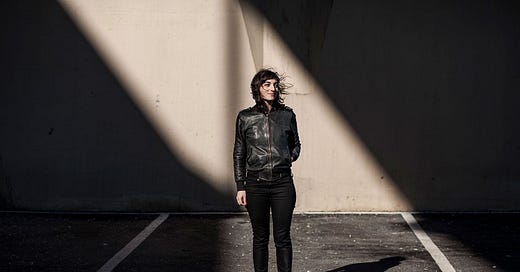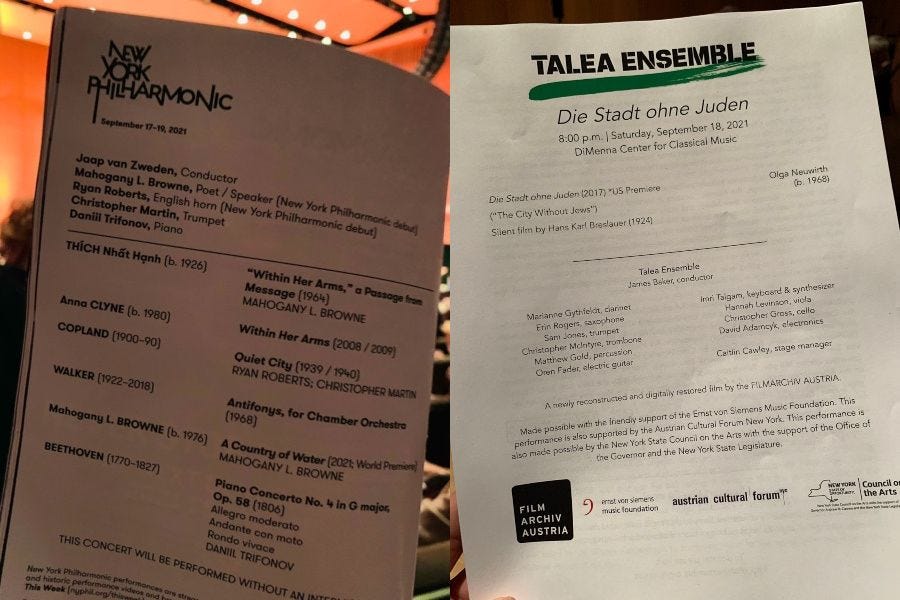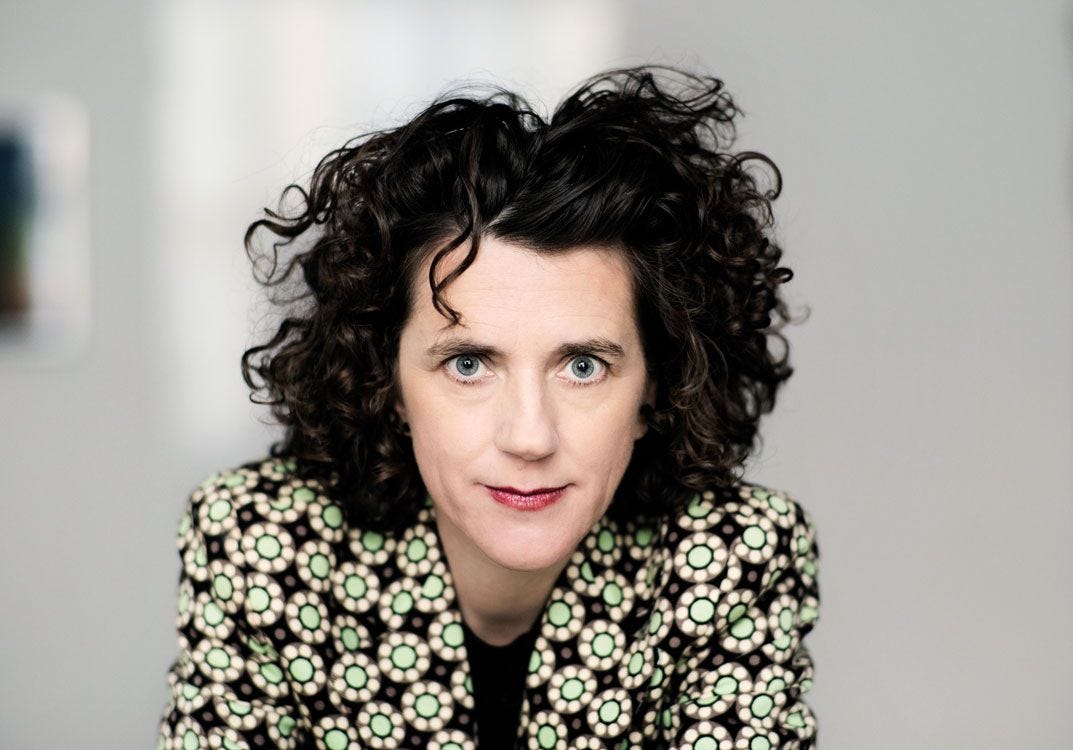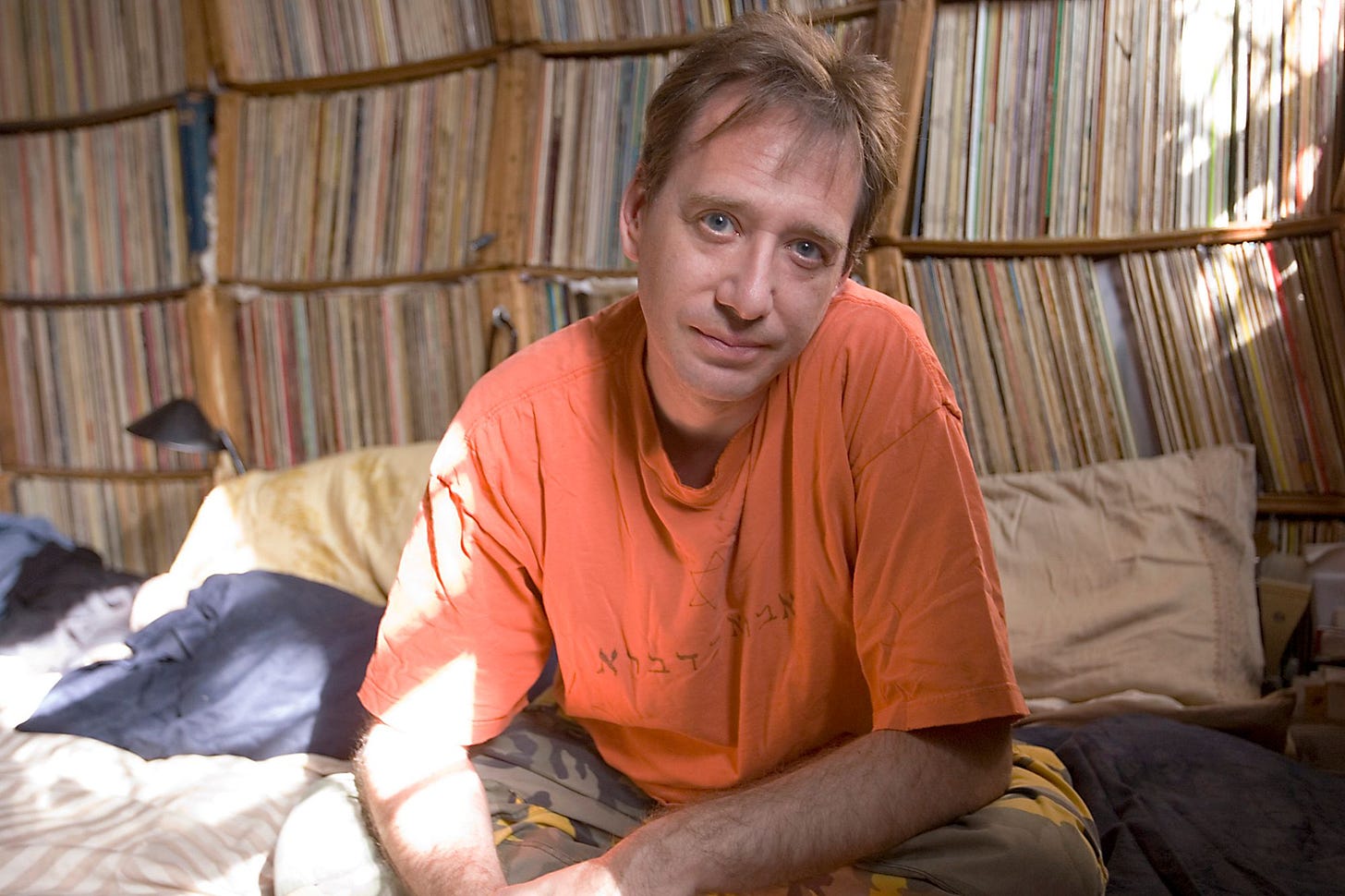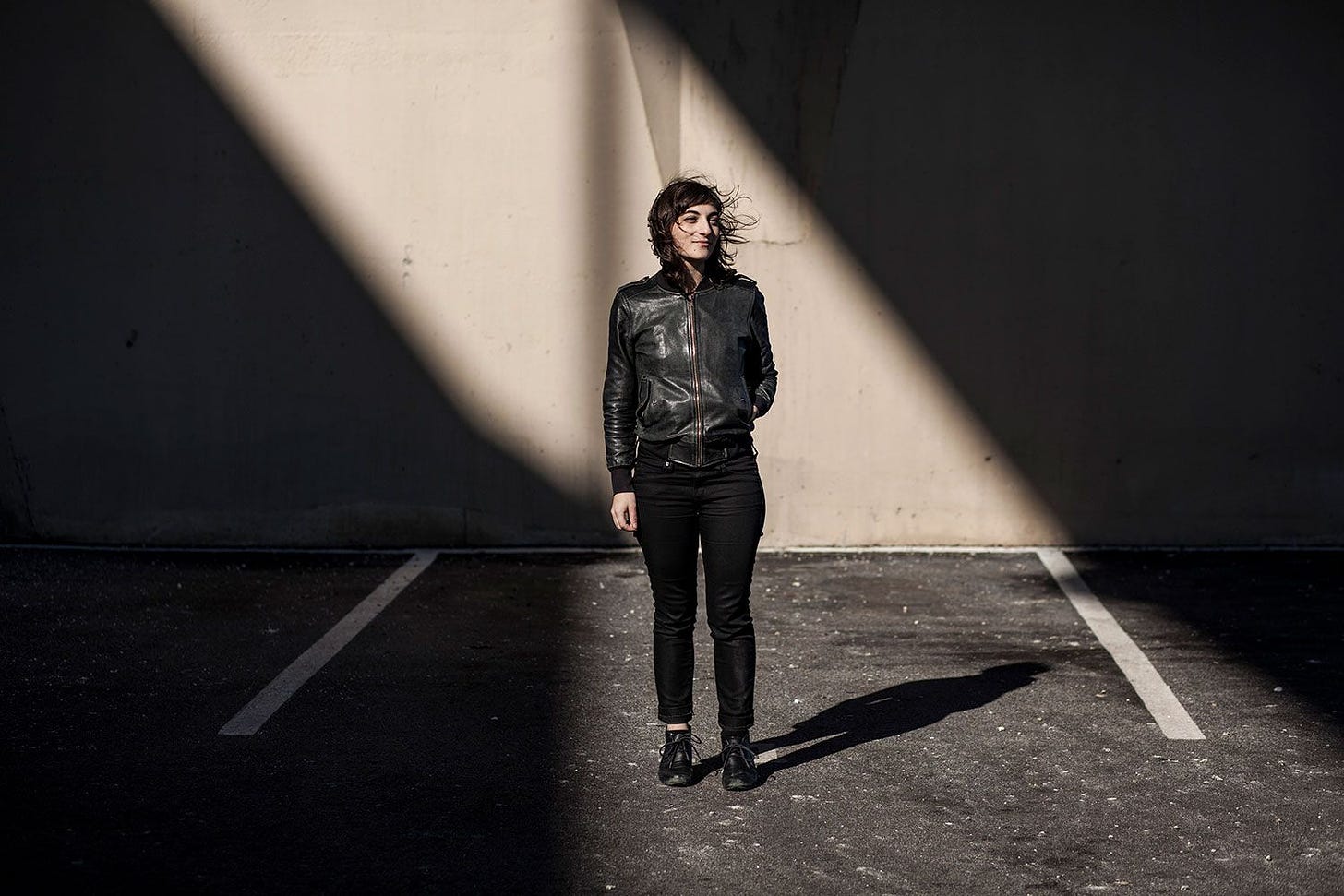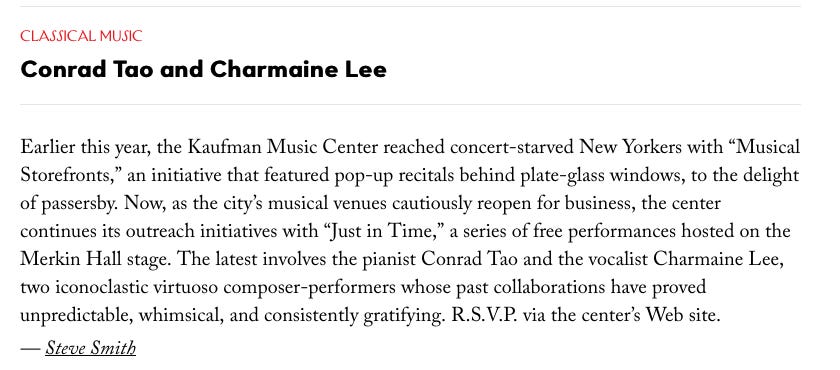Alive again.
Reflections on two rich, meaningful season-opening concerts, plus timely news and concert listings for the week ahead.
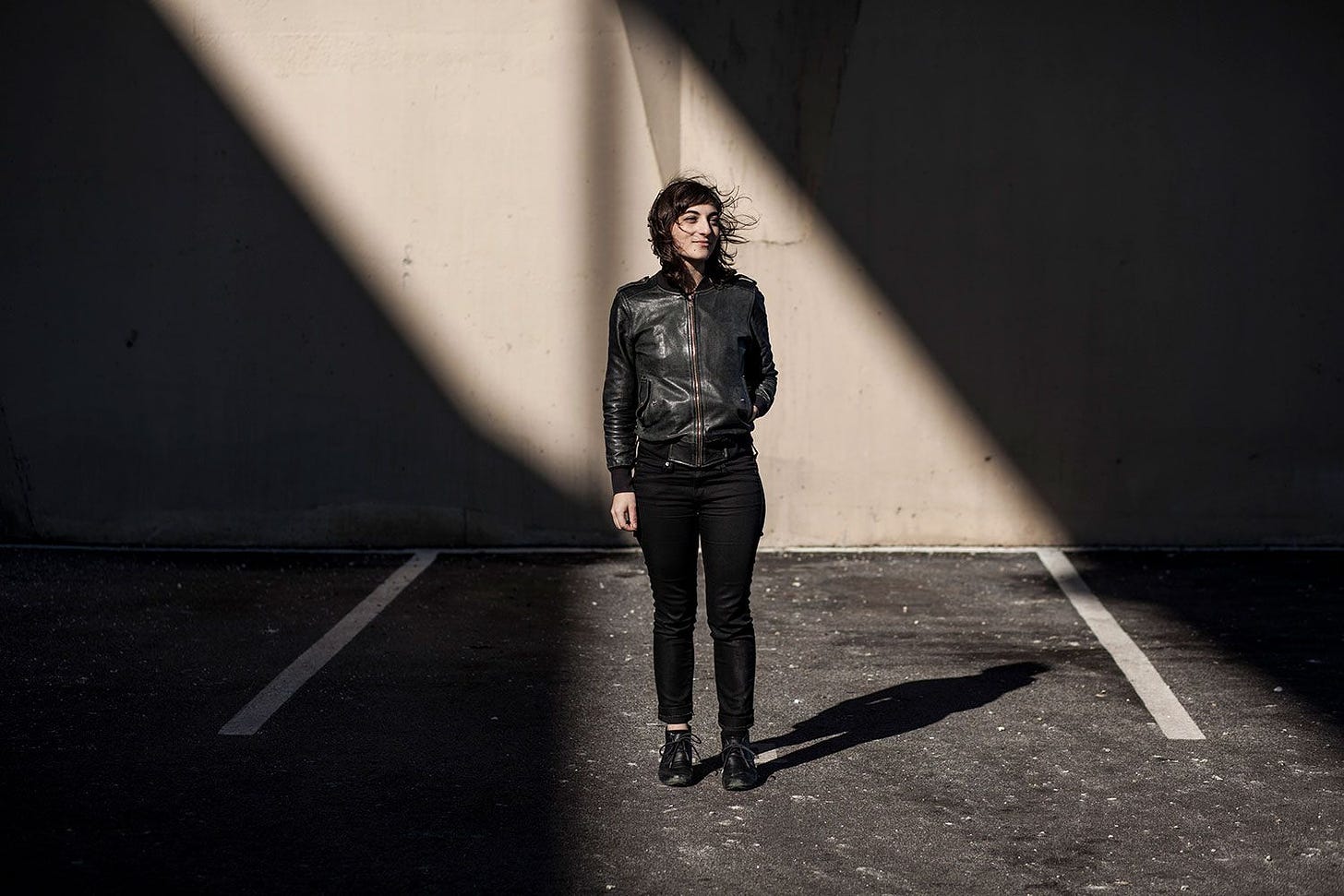
Prelude.
Weeks after I missed this year's tantalizing Time Spans festival entirely, it felt like a genuine achievement to attend two concerts last weekend: the New York Philharmonic's season opener on Friday at Alice Tully Hall, and a significant U.S. premiere by Talea Ensemble at the DiMenna Center for Classical Music. Both were intensely satisfying on manifold levels—not least a feeling of security provided by the COVID-mitigation measures enforced by the organizations and venues. (Near as I could tell, masking was adhered to universally among both audiences.)
The New York Philharmonic concert – which came just two days after news broke about music director Jaap van Zweden's unanticipated departure in 2024 – featured as thoughtful a program as any I've witnessed in all my seasons of attendance. Prior to an account of Within Her Arms, a meditative lamentation by Anna Clyne, the Phil invited Lincoln Center poet in residence Mahogany L. Browne to recite verse by Thích Nhất Hạnh that informed and inspired Clyne.
From there, the program proceeded through Aaron Copland's contemplative Quiet City, George Walker's roiling Antiphonys, and a self-assured original poem by Browne, "A Country of Water," arriving finally at Beethoven's Piano Concerto No. 4. The last was a showcase for the talented pianist Daniil Trifonov. Given that it begins, unusually, with unaccompanied piano, then shifts to 64 bars sans soloist before integrating its parts, the concerto to me also evoked an individual's cautious re-emergence and integration into a broader society: potent symbolism for a season opening on the heels of a global crisis not yet solved.
Everything about the program's shape enhanced that impression. Starting with the Clyne piece, with an intimate ensemble of just 15 strings, the orchestra grew slightly for the Copland (with English horn and trumpet positioned up front as soloists—a dubious but defensible notion), and then rather more for the Walker, filled with restless percussion. When the orchestra at last filled the Tully Hall stage for the finale, an impression community rebuilding gradually was achieved.
The two concert reviews I've read so far offered opposing views. Tony Tommasini, in The New York Times, spends much time discussing van Zweden's fragmentary tenure: expressing surprise and approval over the now-outgoing music director's track record in contemporary music, and contrasting that position with a mixed regard toward van Zweden's efforts in standard repertoire. I concur.
Tony is wholly positive regarding this concert's execution, and effusive regarding Triifonov. On the other hand, Barbara Jepson in the Wall Street Journal (paywalled) is more critical, praising the ensemble and the Clyne and Walker performances, while dismissing as hasty and undercharacterized the Copland and Beethoven accounts. Here, too, ultimately I concur. But I can't say that I was bothered in the moment, so thoroughly convinced was I by the emotional throughline the program seemed to represent. (One more perspective: David Wright's thoughtful, detailed report for New York Classical Review.)
Curiously, I saw what appeared to be skepticism on social media concerning the incorporation of poetry alongside music—or perhaps it simply amounted to both elements being billed in identical typefaces, leading to confusion? (See the photo, above.) Personally I found the juxtaposition of disciplines was inspired, and I hope Van Zweden and the Phil feel emboldened to venture more experimentation before they part ways.
My sole regret concerning the Talea Ensemble performance on Saturday night was that I didn't learn about it in time to share the news in The New Yorker. The event certainly merited that kind of platform: Talea presented a screening of Die Stadt ohne Juden, a 1924 Austrian silent film that takes a satirical view of anti-Semitism – with a happy ending, remarkably – accompanied with an original 2017 score by Olga Neuwirth. (I wrote a bit about the event here last week.)
It's always worth repeating that Neuwirth is a composer of major stature, one still grossly under-represented in New York City concert life. It was good to see, then, that even with little advance warning and COVID-prompted capacity restrictions, a relatively full house assembled to hear this vital score, which in August earned Neuwirth composer of the year recognition from Opus Klassik.
The film is sad, funny, caustic, and affirmative by turns; Neuwirth's music follows suit in a language that's wholly contemporary yet entirely sympathetic both to what's depicted onscreen and the film's broader implications. (That affinity also reinforced just how sadly timely this nearly century-old film is right now.) Ghostly sampled voices hover during scenes in a synagogue; echoes of klezmer and jazz shade other scenes. A haughty English speculator helping to ruin the economy of Utopia – the titular "City Without Jews," an allegorical Vienna – is scored with an acidulous distortion of Elgar's Pomp and Circumstance March No. 1.
The Talea players, conducted by James Baker, gave a stylish, assured account of this arresting score. I almost added "needless to say," except that this invaluable ensemble is in the midst of a leadership transition right now, so the excellence of this performance is all the more impressive in context. (P.S. Talea is seeking applicants for a new executive director; read more here.) Next up on the Talea agenda is a performance of Julius Eastman's Femenine at Harlem Stage on Oct. 9.
As for Neuwirth's music, near as I can tell it's only available on a German DVD and Blu-ray issue of the film through ARTE. Hopefully in time it will find the wider distribution it urgently merits.
Here is the news.
Zorn again. There's news of two noteworthy developments concerning John Zorn, New York's favorite improvising composer, bandleader, and community organizer. First, The Stone, Zorn's concert series at The New School in Greenwich Village, is scheduled to resume in October. At least initially, its customary five-night runs are reduced to three-night affairs; the first bookings feature pianist-composer Kris Davis (Oct. 21–23) and guitarist-composer Mary Halvorson (Oct. 28-30), with more engagements confirmed for November and December.
Also in October, Zorn and his uproariously brilliant New Masada Quartet – guitarist Julian Lage, bassist Jorge Roeder, and drummer Kenny Wollesen – are confirmed for two Sunday matinée performances at the recently reopened (hallelujah!) Village Vanguard. The gigs are scheduled for Oct. 17 and 24 at 3pm. (Alas, it seems they've sold out in advance since I added them to the Night After Night Watch Master List last week.)
Mothers of invention. Newly launched last week is Matricalis, a website meant to provide support and resources for professional musicians who also are mothers. Established by violinist and Mivos Quartet founder Olivia De Prato, composer and pianist Zosha di Castri, flutist-composer Allison Loggins-Hull, and flutist-vocalist Alice Teyssier, the site is meant to "tackle one of the final 'taboos' in the professional music world." The group's first public event – Loggins-Hull's project Diametrically Composed, presented by National Sawdust in Bryant Park – took place last Friday, but the livestream is archived on YouTube. The other three founders also are working on individual projects; all four will participate in an interactive video forum scheduled to be held on Sunday, Nov. 14, at 11am EST.
Noteworthy. Last May in this newsletter I shared news of some professional-development courses taught by my wife, Lara Pellegrinelli, at the Juilliard School. Some of you even participated in the class about creating a newsletter that we led jointly—thanks! That course is scheduled to return soon. But before then, the redoubtable Dr. LP is offering a new course aimed at serving a need for composers: writing effective program notes while avoiding dutiful routine. Anyone who's read the notes Lara has provided for Miller Theatre Composer Portraits during the last four seasons – like this one for Annea Lockwood, or this one for Tyshawn Sorey – will recognize that she knows whereof she speaks. Here's the course description:
The composer’s note for a new work is critical to its musical reception, offering essential insights that ensure it connects with its audience as well as future generations of performers and researchers. In this course, composers will be encouraged to consider what information listeners need before they experience a new work, whether that audience consists of peers, new music aficionados, or a broader public. Notes may also be composed to appeal to presenters and the media. Composers will consider questions about their pre-compositional influences as well as the musical materials themselves; however, musical works need not be programmatic for artists to craft compelling narratives about their genesis. Feedback from the instructor will include commentary on content and style.
Information about enrollment is available here.
Night After Night Watch
All events listed in Eastern Standard Time
22
Taka Kigawa
(Le) Poisson Rouge
158 Bleecker St., Greenwich Village
Wednesday, Sept. 22 at 7:30pm; $30, advance $20
Proof of at least one vaccination dose required
lpr.com
György Ligeti - Selections from Études for Piano; Pierre Boulez - Second Sonata for Piano; Third Sonata for Piano (version 2021 - Antiphonie, Trope, Constellation - Miroir)
23
Bob Bellerue + Andrea Pensado + Apologist
First Unitarian Congregational Society
119 Pierrepont St., Brooklyn
Thursday, Sept. 23 at 7:30pm; free admission
Masks and proof of vaccination required
Facebook event page
You probably know Bob Bellerue as the sound engineer who makes everything sound so good at Issue Project Room. You might also know him as the organizing force behind Ende Tymes, New York's most durable noise festival. Those twin qualifications explain how on Radioactive Desire, his new 2-CD album of feedback-saturated improvised chamber music, Bellerue weds roil with repose in works of caustic beauty. His ensemble here includes Laura Ortman, Gabby Fluke-Mogul, and Jessica Pavone, among others. And while you might know that Bellerue will showcase this project at Roulette in November, this is your only chance to hear the god-bothering rrröööaaarrr of Organ Feedback as it's meant to be experienced. All this, plus opening sets by Apologist and Andrea Pensado.
23
Anna Webber Simple Trio + Idiom VI Large Ensemble
Roulette
509 Atlantic Ave., Brooklyn
Thursday, Sept. 23 at 8pm; $25, advance $20
Free livestream (donations accepted)
Proof of vaccination required
roulette.org
Saxophonist, flutist, and bandleader Anna Webber finally gets to celebrate the release of Idiom, the prodigious 2-CD album she released in May, with original music for her Simple Trio (with pianist Matt Mitchell and percussionist John Hollenbeck), plus Idiom VI for large ensemble.
24
Ljova: Enter the Fadolín
Bargemusic
Fulton Ferry Landing, Brooklyn
Friday, Sept. 24 at 7pm; $35
Proof of vaccination required
bargemusic.org
Ljova (Lev Zhurbin) - Selections from Caprices for Fadolín Solo; Midnight Suite; Alexander Zhurbin - Fine Fantasy for Fadolín; Bach and Dvořák adaptations.
Ljova is a personable polymath whose musical pursuits cover the waterfront, from canonical classics to sophisticated film scores and boisterous folk-dance fare. On a literal waterfront here, he introduces his newest project, Enter the Fadolín, featuring the titular ax: a custom six-string fiddle that encompasses the full violin and viola ranges, along with most of a cello. (Read his persuasive invitation here.)
25
loadbang
Marc Scorca Hall, National Opera Center
330 Seventh Ave., Manhattan
Saturday, Sept. 25 at noon; $20, seniors and students $10
Livestream on YouTube; $20 requested donation for BIPOC commissioning fund
Proof of vaccination required
eventbrite.com
No offering from loadbang, an idiosyncratic quartet comprising baritone vocalist Jeffrey Gavett, clarinetist Adrian Sandi, trumpeter Andy Kozar, and trombonist Will Lang, could rightly be described as conventional, but Plays Well With Others easily stands as the group's boldest gambit to date: a collection of works that integrate the brave combo with a chamber orchestra. There'll be no strings attached at this intimate record-release matinée, but the program includes music by the same composers featured on the album: Eve Beglarian, Taylor Brook, Reiko Füting, Paula Matthusen, Heather Stebbins, and Scott Wollschleger.
25
Dan Tepfer with Semplice Players
Bargemusic
Fulton Ferry Landing, Brooklyn
Saturday, Sept. 25 at 6pm; Sunday, Sept. 26 at 4pm; $35
Proof of vaccination required
bargemusic.org
Dan Tepfer - Solar Spiral; Wolfgang Amadeus Mozart - Piano Concerto in E-flat (K. 449), arr. for piano and string quartet
26
Vijay Iyer Trio
(Le) Poisson Rouge
158 Bleecker St., Greenwich Village
Sunday, Sept. 26 at 7 & 9:30pm; $35-$45, advance $25-$35
Proof of at least one vaccination dose required
lpr.com
27
Conrad Tao & Charmaine Lee
Merkin Hall, Kaufman Music Center
129 W. 67th St., Upper West Side
Monday, Sept. 27 at 7:30pm; free (RSVPs strongly urged)
Masks plus proof of vaccination or negative PCR test required
kaufmanmusiccenter.org
I've just written about this remarkable free event at Merkin Hall for The New Yorker…
…and here's some further verbiage I produced after the first time I heard Tao and Lee together, at the Kaplan Penthouse in 2018:
The first Nightcap event on Sept. 28 showed just how far [Nadia] Sirota and her colleagues are willing to venture in positioning living composers not only as innovative creators, but also as intelligent, curious people with broad, diverse interests. Conrad Tao, who earlier in the evening had prefaced a Bruckner symphony with an ear-opening “overture” commissioned for the occasion, was featured as a pianist, his best-known guise.
But he also dug deep into electronics, at one point scrubbing contact microphones through his close-cropped hair to produce visceral noise like you might hear at the Silent Barn or the Ende Tymes festival. His rubbery synth-pop transmutations, meanwhile, might have shared an NNA Tapes CMJ Marathon showcase with Ryan Power and Autre Ne Veut at Death By Audio… the astonishing vocalist Charmaine Lee offered free-improv flits and gurgles, breathy ASMR stimulation, bells, bird calls, and bubbles blown in a drinking glass, before singing simply and gorgeously in “Heavy Rain,” a Tao original.
27
Lea Bertucci: A Visible Length of Light + Duo with Ben Vida
Roulette
509 Atlantic Ave., Brooklyn
Monday, Sept. 27 at 8pm; $25, advance $20
Free livestream (donations accepted)
Proof of vaccination required
roulette.org
Saxophonist, composer, and improviser Bertucci shares beguiling pieces from her most recent album, A Visible Length of Light, and introduces a new working duo with electronic composer and accordionist Ben Vida.
Read even more listings in Night After Night Watch: The Master List, detailing events for weeks to come, exclusively for paying subscribers.
